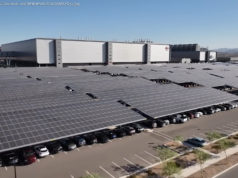Wollongong has won MyRepublic’s gigatown competition, with 1Gbps NBN services to be provided for free to 100 FttP customers and AU$130 per month to additional new and existing customers in the city.
Retail service provider (RSP) MyRepublic has announced that it will be launching gigabit-speed National Broadband Network (NBN) services throughout Wollongong in an effort to prove consumers’ want and need for 1Gbps broadband.
As the winning city of its gigatown competition, 100 Wollongong-based MyRepublic NBN customers with premises within a 10km radius of the winning entrant’s address will be given a free upgrade to 1Gbps speeds for the next year.
Due to MyRepublic “heavily” subsidising the cost of providing the high-speed service, a limited number of its existing and new customers in Wollongong are also being offered 1Gbps speeds and unlimited data for 12 months for AU$129.99 per month as long as they have fibre-to-the-premises (FttP) connections.
“Things like streaming and gaming will be a better experience, but we will also demonstrate how Australia should be taking advantage of the digital economy, ” MyRepublic Australia MD Nicholas Demos said.
“We need to open up more opportunities for people to be able to work remotely, reducing the requirement for commuting, and drive innovation, generating real economic and social benefits like more jobs, improve efficiency, and economic growth.”
FttP is currently the only network technology able to offer 1Gbps speeds until DOCSIS 3.1 is switched on for hybrid fibre-coaxial (HFC) customers mid next year, after being delayed from launching in the second half of 2017 .
MyRepublic will launch 1Gbps services in Wollongong in July after announcing its gigatown competition earlier this year in response to statements by NBN CEO Bill Morrow that consumers don’t need and wouldn’t use 1Gbps broadband.
“There is literally not a single mass market consumer application — or even a combination of applications — that requires 1Gbps capability right now, ” Morrow, who later defended his statements, said.
“Even if we offered it for free, we see the evidence around the world that they wouldn’t use it anyway.”
Calling “bull****” on these claims, Demos said more than 1 million users are on the 25/5Mbps speed tier only because offering gigabit-speed services on the NBN would cost RSPs between AU$300 and AU$400 thanks to NBN’s connectivity virtual circuit (CVC) and access virtual circuit (AVC) charges.
To that point, Launceston RSP Launtel earlier this week launched AU$1,000 per month 1Gbps NBN services throughout the Tasmanian city for business customers — which CEO Damian Ivereigh said is in comparison to gigabit-speed fibre plans in Sydney or Melbourne that would “easily cost AU$2,000/month”.
“Bill came out and said ‘people don’t want it because we have a product now and no one’s taking it’. That’s because it’s not at a fair price, ” Demos told ZDNet.
“AVC for a 100 [Mbps] product now costs AU$38 for a wholesaler, for me to get on to buy, but then I have to pay CVC on top of that.
“For a gig product, I’ve got to pay AU$150 today, and then I’ve got to pay CVC on top of that, and then of course all my other phone costs. So the price to launch a gig product today in Australia — I’d have to price it at between AU$300 and AU$400, which is not a fair price for a consumer to pay.”
NBN’s wholesale pricing incorporates a two-part model, with the CVC charge paid in addition to the AVC charge levied across all speed tiers. The CVC charge reserves a consumer’s bandwidth from the point of interconnect (POI) .
By comparison, Demos said New Zealand only has an AVC and no separate CVC charge, meaning RSPs can provide consumers with 1Gbps services at an economical price point — as demonstrated by the fact that the majority of RSPs in New Zealand have been offering 1Gbps services as of the end of last year across the New Zealand government’s NBN equivalent for just AU$65 per month.
NBN this week introduced individually averaged discounted CVC pricing for RSPs following continuing widespread industry criticism, which saw Vodafone and Macquarie Telecom argue in their submissions to the NBN Joint Standing Committee that there needs to be a “serious examination” of the way the CVC pricing is inhibiting user experience.
“The industry is not currently incentivised to deliver the full potential benefits of the NBN, ” Vodafone argued, saying “urgent changes” need to be made.
“This CVC pricing penalises RSPs for provisioning higher guaranteed capacity, and therefore more consistent guaranteed performance for their customers. The fixed AVC monthly charge increases steeply for higher-speed plans. This, combined with higher CVCs to guarantee the higher throughput customers would expect on higher-speed plans, means that the pricing model discourages RSPs from offering higher-speed data plans.”
NBN’s CEO has since argued that CVC pricing does not impact user experience .
“I don’t believe that the price of the CVC has anything to do with that experience the end user is having, ” Morrow said.
“We have a lot of evidence against this … that’s not really what is driving any kind of experience issues for them.”
NBN made AU$199 million in CVC revenue during the first nine months of the current financial year.





